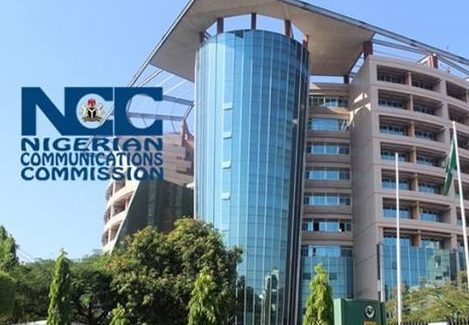NCC Moves to Operationalize Presidential Order on Protection of Telecom Infrastructure

By Danjuma katsina
@ katsina times
The Nigerian Communications Commission (NCC) says it is taking steps to operationalize the Presidential Order on the Protection of the country's telecom infrastructure against vandalism and other acts of sabotage.
The Executive Vice Chairman of NCC, Dr Kabir Maida, announced this at the second edition of the strategic stakeholders meeting of the Association of Telecom Companies in Nigeria (ATCON) held in Abuja.
Maida noted that the presidential order signed in June 2024 is not merely a policy directive but a national imperative that demands coordinated and decisive action.
He said the order which identifies the role of telecoms infrastructure in powering Nigeria's economy, security, public health and governance is a clarion call to protect these investments in the interest of national security.
"Telecom infrastructure encompasses the interconnected systems and networks that power Nigeria’s economy, security, public health, and governance. These foundational pillars of our digital ecosystem enables critical sectors like finance, healthcare, energy, and education to thrive.
"With 171 million mobile subscribers as of June 2025, the telecommunications sector is the backbone of digital inclusion, connecting Nigerians to education, economic opportunities, and essential services.
"The industry contributes over 14.4 percent to Nigeria’s GDP and underpins nearly all critical sectors, making it the cornerstone of national stability and digital sovereignty.
"Any disruption to these assets could paralyse vital services including emergency communications, financial transactions, and government operations", he said.
Citing the Nigerian Cyber security Outlook Report by Deloitte, the NCC boss pointed out that telecoms infrastructure in the country face relentless threats which increased in 2024.
"Physical disruptions such as vandalism and theft are equally alarming, with service providers reporting an average of 30 to 40 fiber-optic cable cuts daily. These incidents erode service reliability, public trust and economic stability.
"The Presidential Order is a clarion call to protect this vital infrastructure, it aligns with Nigeria’s National Digital Economy Policy and Strategy (2020- 2030) and the Renewed Hope Agenda".
Maida noted that a resilient telecoms infrastructure will foster citizen confidence, attract investment and position Nigeria as a leader in Africa's digital economy.
To operationalize the Presidential Order which designates Nigeria's telecom infrastructure as Critical National Information Infrastructure (CNII), Mr. Maida said NCC has identified seven critical steps which include infrastructure mapping, developing a strategic protection plan, and stakeholders awareness campaign against vandalism.
"In partnership with the Office of the National Security Adviser which has the statutory mandate to oversee the operationalisation of the CNII framework, we are developing a robust plan to prevent unauthorized access, vandalism, and cyberattacks.
"This collaboration ensures alignment between regulatory enforcement and national security strategy, particularly in intelligence sharing, risk classification, and response coordination.
"We will also launch nationwide initiatives to educate communities and stakeholders on their shared responsibility to protect CNII", Maida noted, describing the steps being taken by the commission as "preventive, participatory, pragmatic" and anchored on shared responsibility.

